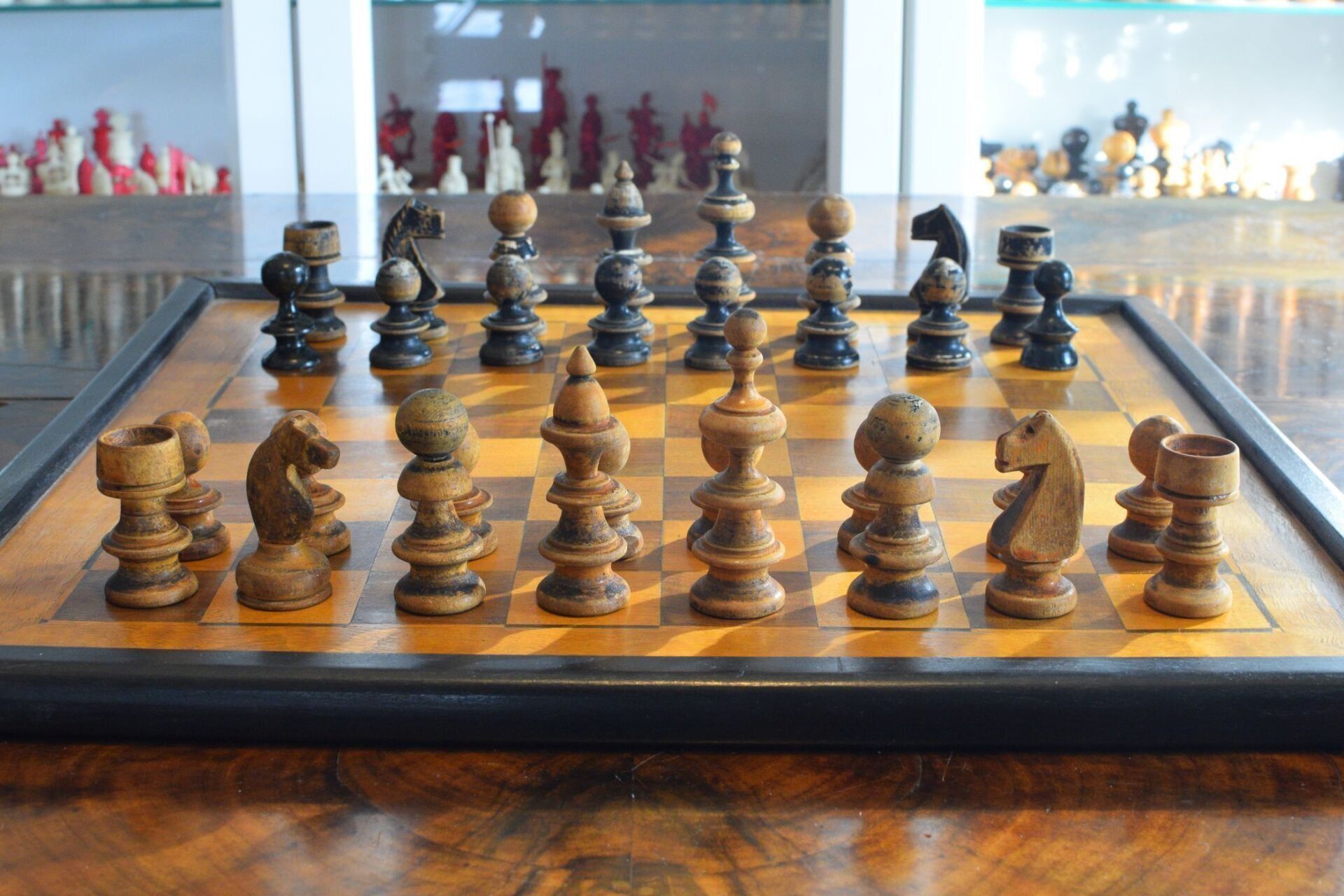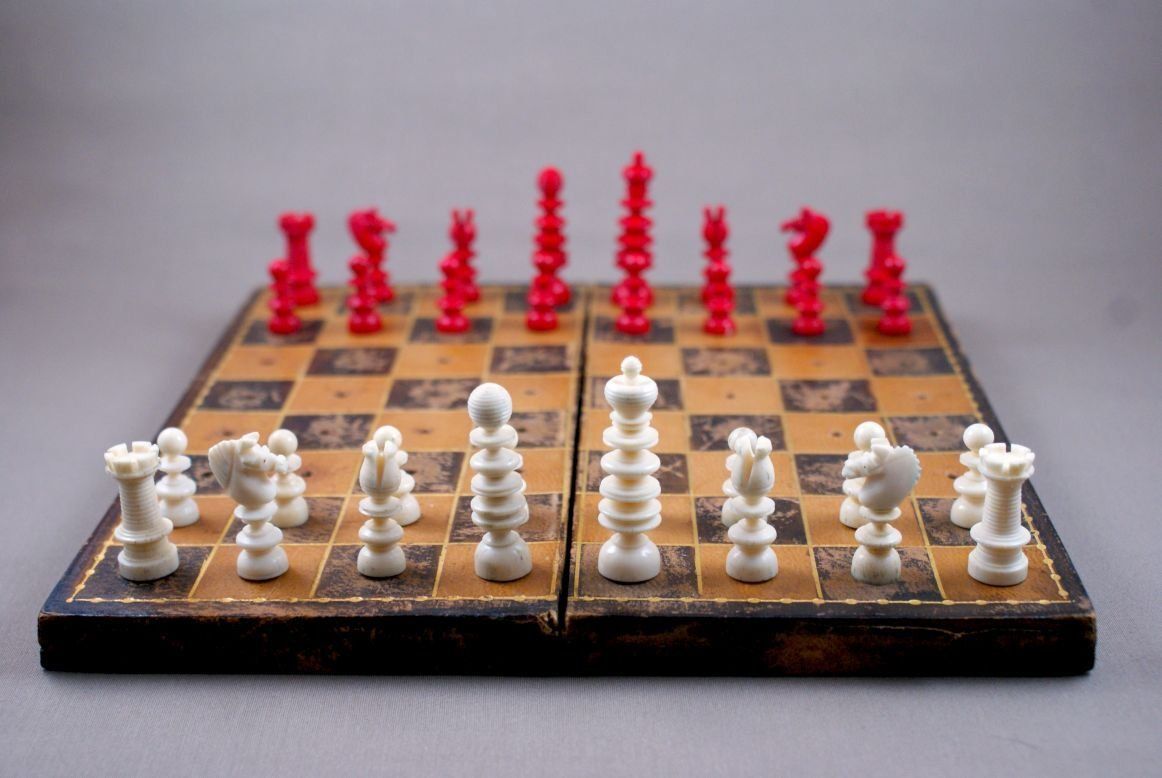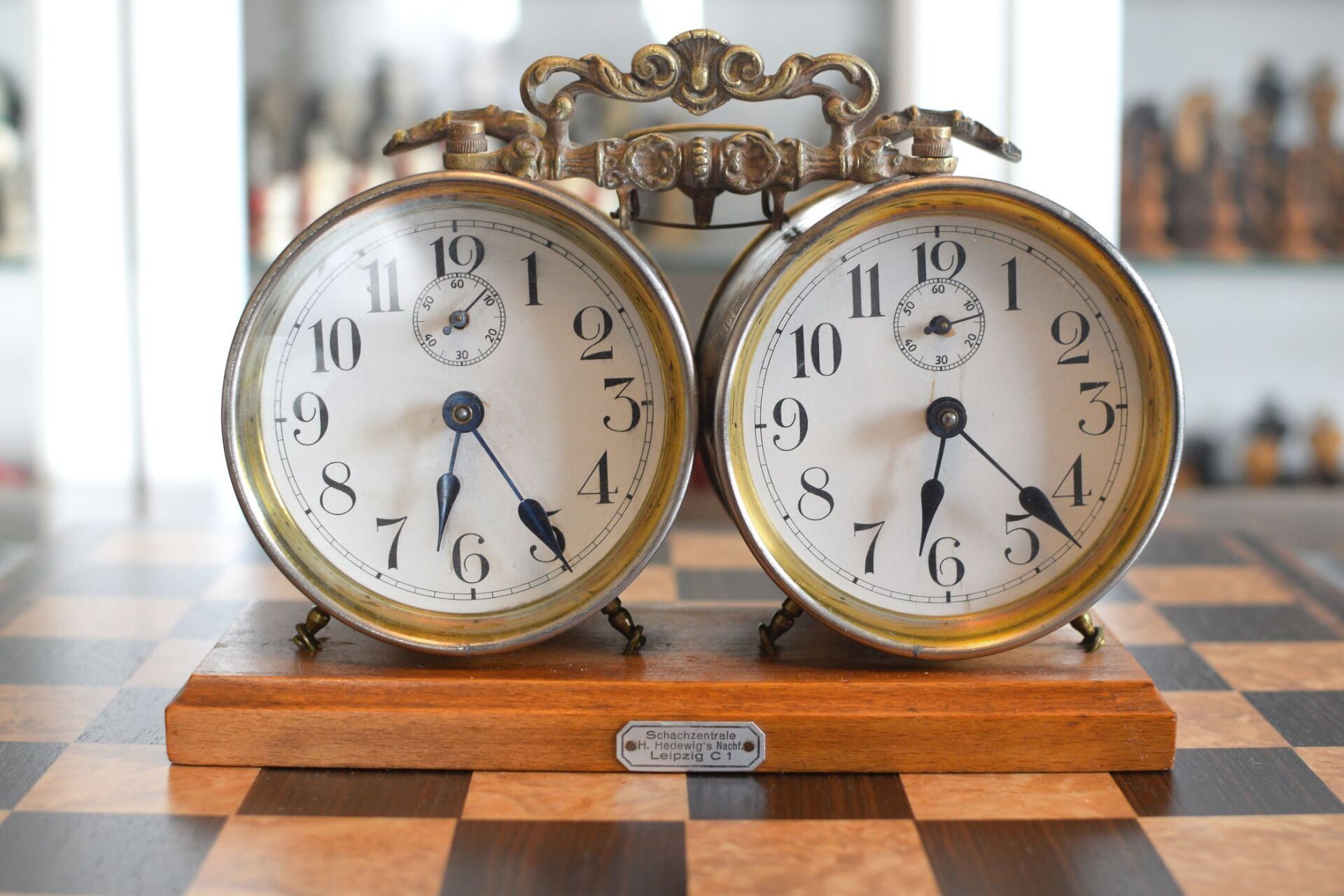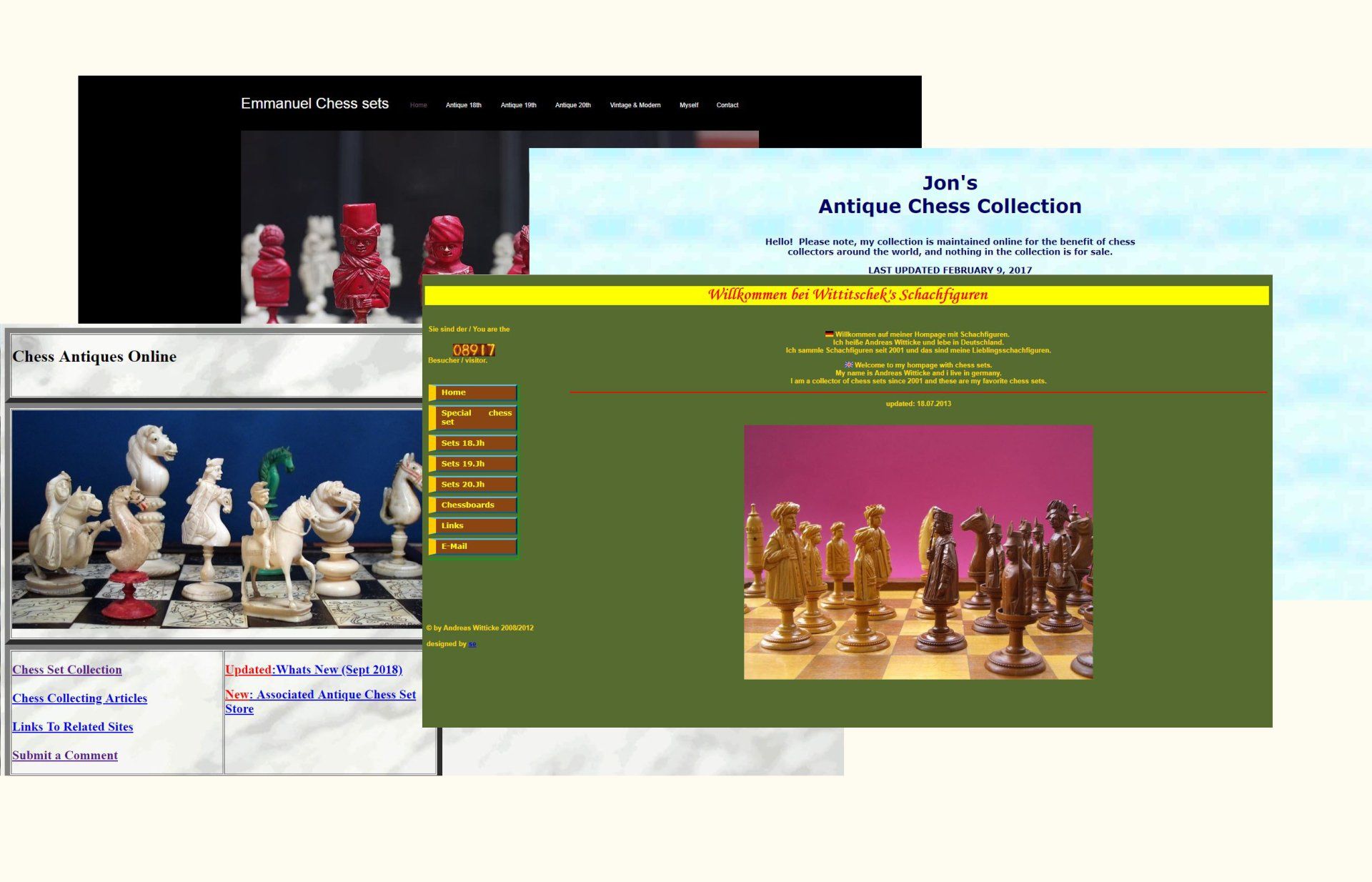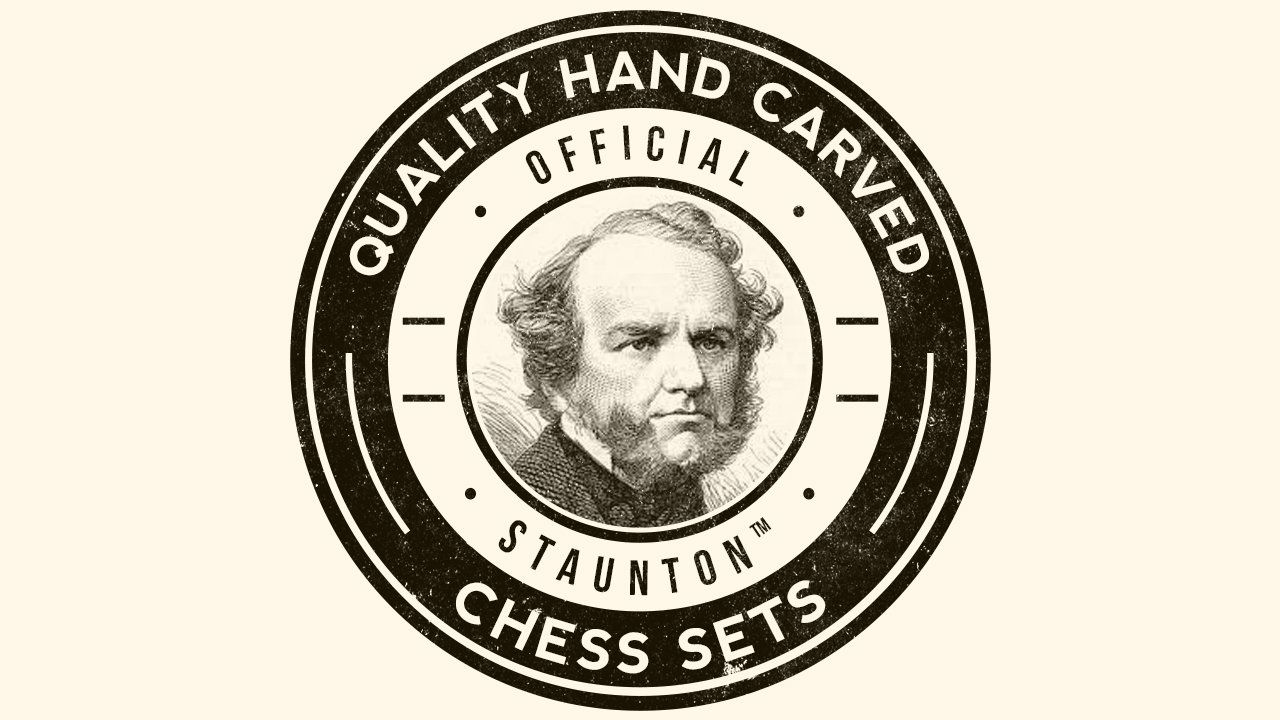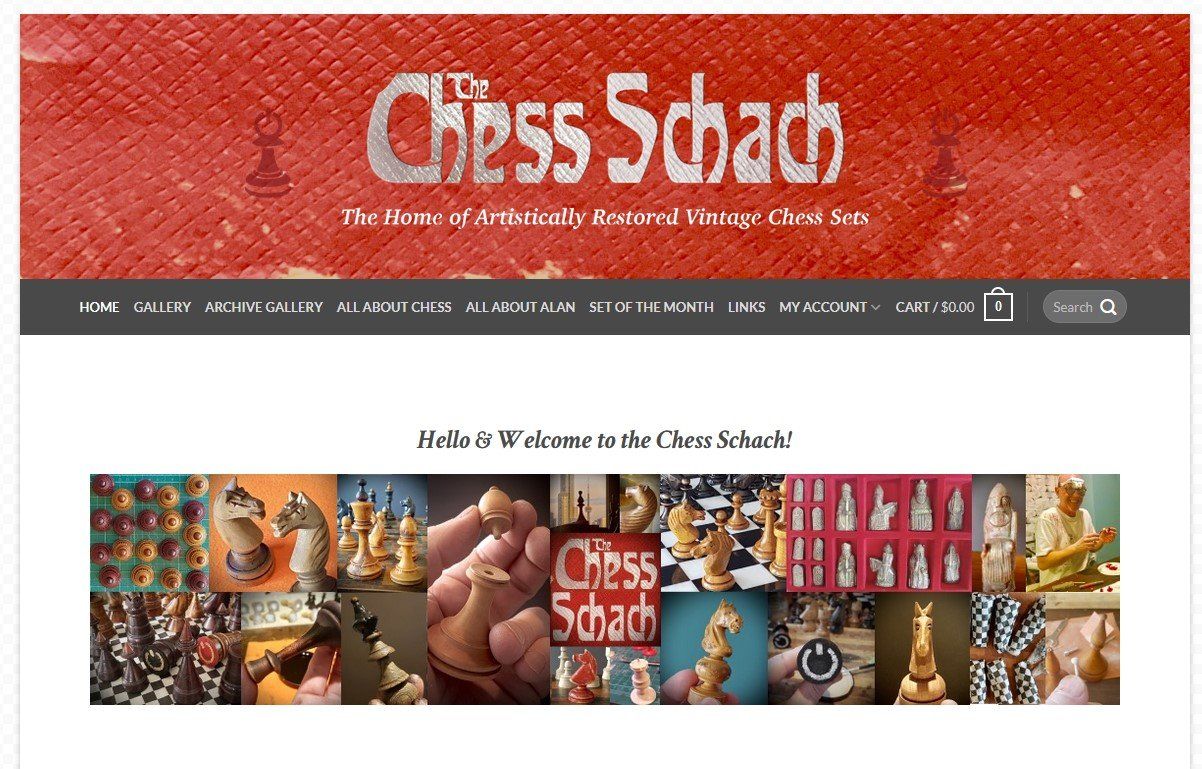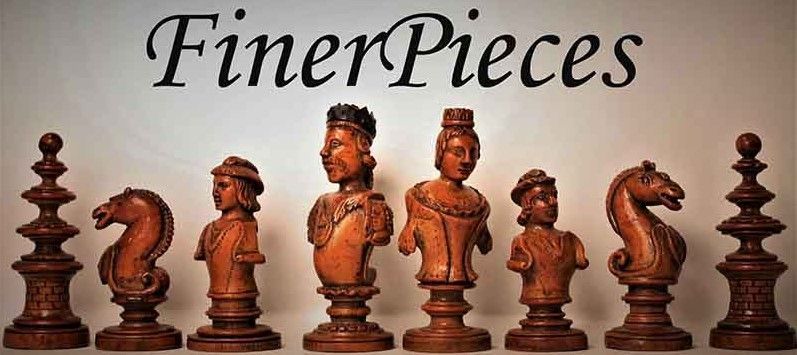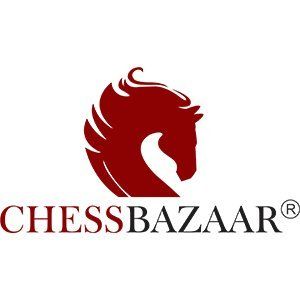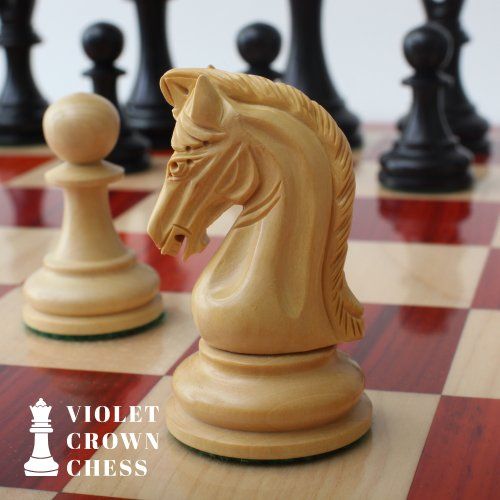German "Bundesform" Chess Set (Habera), 1935-1945
German "Bundesform" set. King size is 8.5 cm. All pieces are weighted. The set was most likely produced before the end of WWII. In the lid you can see an imprint "Deutsche Bundesform". Underneath is the following imprint: "Ges. gesch. M. R. Nr. 527", which means "gesetzlich geschützt, Musterrecht Nr. 527" (which again translates to "protected by law, copyright No. 527). These copyrights, which were granted by the Nazi regime during their government, were revoked after the war, so it did not make sense to imprint them any longer.
This set is most likely an original 1930's set distributed by Habera, a company formerly based in Arnstadt/Thuringia, in the eastern part of Germany. These type of sets were designed and introduced by Ehrhardt Post, then president of the Grand German Chess Association (Groszdeutscher Schachbund / GSB) in the mid 1930's. Post was closely connected to the Nazi regime and, in particular, involved in the removal of Jewish players from German chess clubs. When the German Chess Association (Deutscher Schachbund / DSB) was dissociated by force in 1933 and replaced by the GSB, Post was the natural choice of the Nazis, because he was reliably loyal to the party line. The Bundesform design was introduced by Post to get rid of the "foreign" Staunton design.
According to an entry in the chronicles of the Starnberg chess cub (close to Munich, where the 1936 Chess Olympiad was held with Bundesform sets) from 1935, which I stumbled upon while researching, the club received circular letters addressed to all chess clubs from their regional chess association as well as the GSB, in which, inter alia, the replacement of their material with the new Bundesform design was urged. This apparently came together with an offer of Habera GmbH, which was one of the companies distributing the Bundesform sets (next to Hans Hedewigs Nachfolger Curt Ronninger in Leipzig). According to the entry in the chronicles, the Starnberg chess club refused the offer, as they had a decreasing number of players and sufficient material available.
